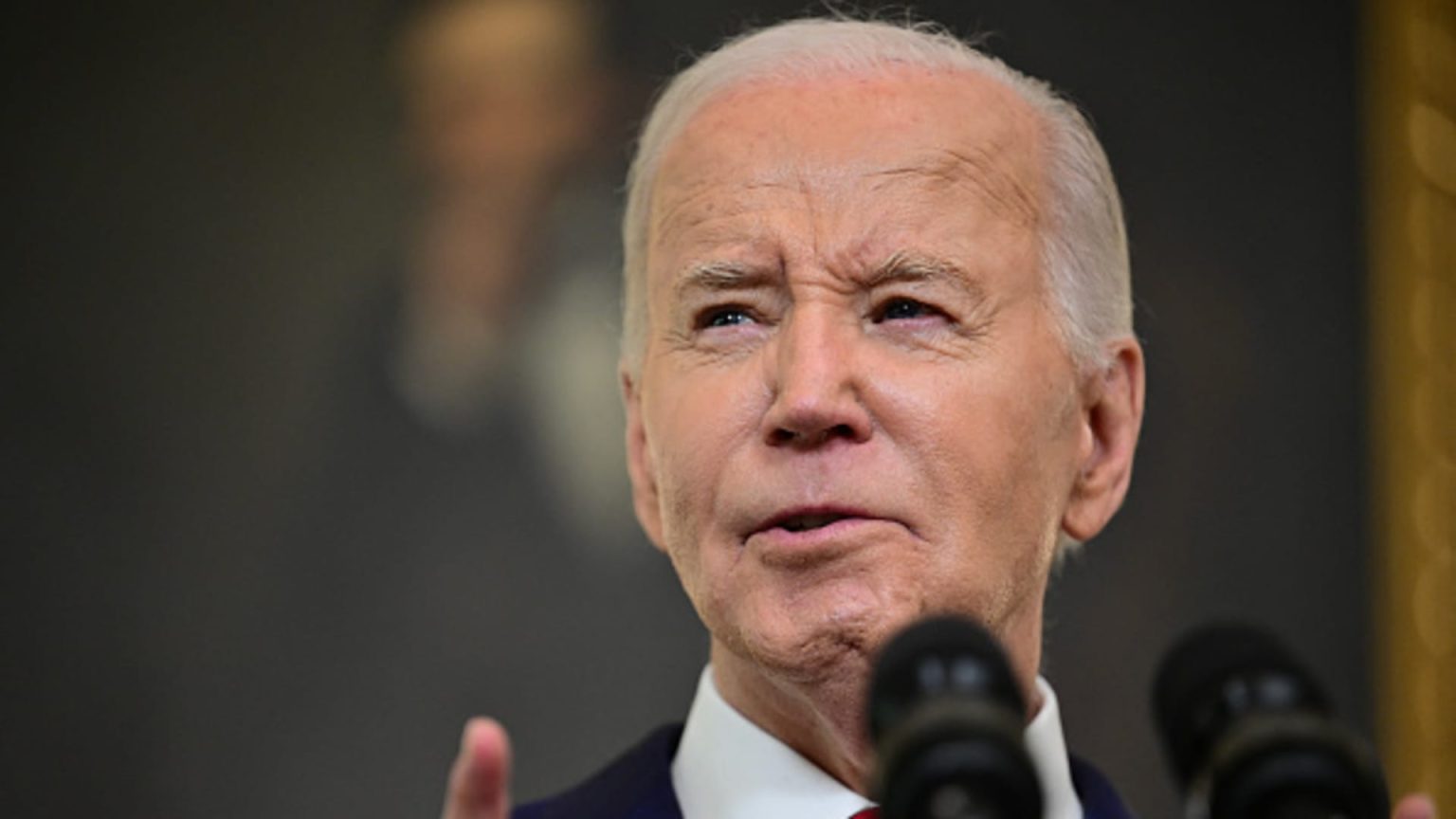President Joe Biden on Wednesday signed into law measures to provide aid to Israel, Ukraine and Taiwan, as well as compel Chinese TikTok parent company ByteDance to sell the social media platform or face a national ban.
Biden’s official approval ends a six-month saga of tense political battles on Capitol Hill that led to a deadlock on the foreign aid.
“The path to my desk was a difficult path. It should have been easier and it should’ve gotten there sooner,” Biden said Wednesday after signing the bill. “But in the end we did what America always does, we rose to the moment.”
Biden had signaled his intention to sign the bill into law after the House passed the proposal on Saturday. The Senate gave its own greenlight late Tuesday night in an overwhelmingly bipartisan 79-18 vote, sending it to Biden’s desk for his signature.
The law earmarks roughly $60 billion in aid for Ukraine, $26 billion for Israel and $8 billion for security in Taiwan and the Indo-Pacific. It also requires ByteDance to sell TikTok within nine months — or a year, if Biden invokes a 90-day extension — or else face a nationwide ban in the U.S.
TikTok has already vowed to fight the measure.
“This unconstitutional law is a TikTok ban, and we will challenge it in court,” the company wrote in a Wednesday statement on X following Biden’s signing. “This ban would devastate seven million businesses and silence 170 million Americans.”
TikTok CEO Shou Zi Chew posted a video response to the enactment of the TikTok bill, calling it a “disappointing moment” and reiterating the company’s commitment to legally challenge the law.
Despite Biden’s official support of the TikTok bill, his 2024 reelection campaign told NBC News Wednesday that it would continue using the social media platform to reach voters for at least the next year. Notably, the nine-month to one-year deadline for ByteDance allows it to maintain ownership of TikTok through the November election.
Along with TikTok’s pushback, the bill had been the subject of heated political attacks, including threats to oust House Speaker Mike Johnson, R-La., from hardline Republicans like Rep. Marjorie Taylor Greene, R-Ga.
Those threats were part of the reason that Johnson stalled the foreign aid even after the Senate, in February, passed a similar $95 billion version of the bill to fund Ukraine, Israel and Taiwan, though that bill did not include the TikTok provisions.
But last week, with that pink slip still looming, Johnson decided to end the House’s foreign aid stalemate following Iran’s attempted strike on Israel on April 13, which triggered fresh bipartisan pressure for the U.S. to help its allies.
In the following days, Johnson put four separate bills to a House vote, three of which would provide foreign aid to Ukraine, Israel and Taiwan and a fourth, which would include other foreign policy proposals including the TikTok bill.
Though Johnson’s move came with professional risks, the speaker has so far stood by it, boosted by public support from former President Donald Trump.
“I know that history is going to judge this well,” Johnson said Wednesday morning in a radio interview on the “Hugh Hewitt Show.” “It was the right thing to do.”
Read the full article here














